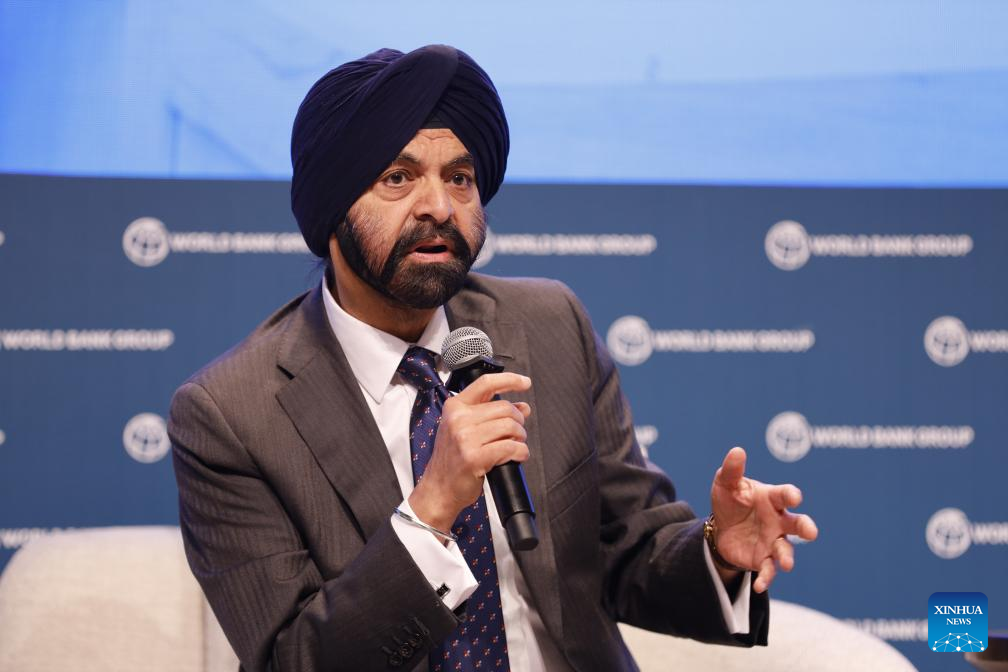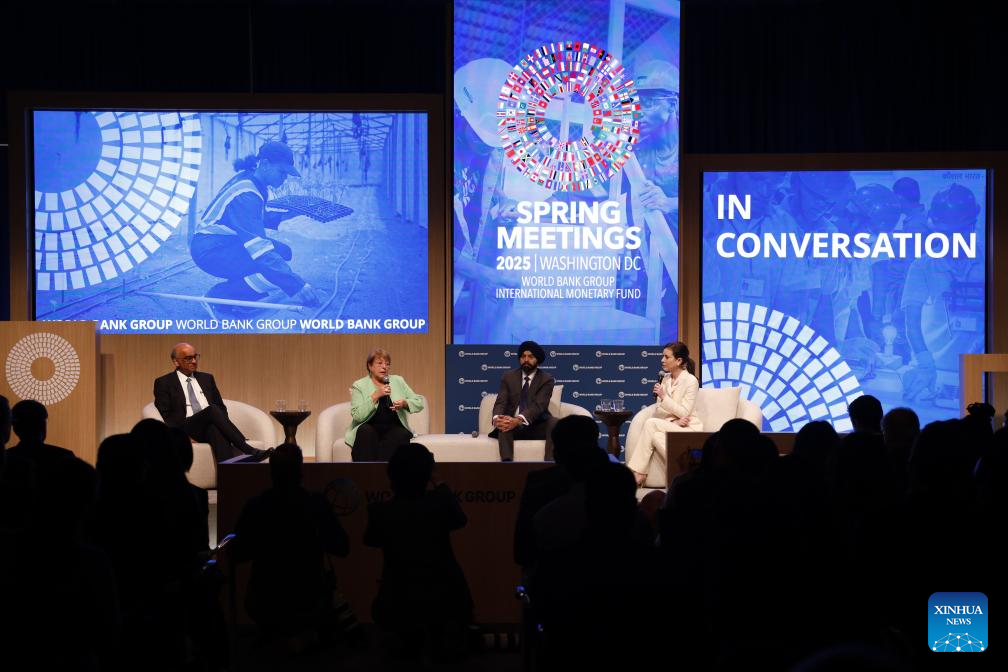
WASHINGTON - World Bank Group President Ajay Banga said Tuesday that lower tariffs are good for everybody, while noting that he has seen increased inter-regional trade and bilateral trade in recent years.
"For the last 10 years, if you look at the number of bilateral and regional trade deals being signed in the world, they are way in excess of what most people are paying attention to," Banga said at an event during the 2025 Spring Meetings of the World Bank Group (WBG) and the International Monetary Fund (IMF).
"CPTPP, RCEP, these are all deals involving groups of nations in the last decade, and it has changed the way trade is working in those countries," Banga said, referring to the Comprehensive and Progressive Agreement for Trans-Pacific Partnership, and the Regional Comprehensive Economic Partnership - two major trade agreements in the Asia-Pacific region.
ALSO READ: IMF: Outlook for US, global growth down
At a press conference last week, the World Bank president noted that there is "untapped potential" in deeper regional integration.
"Trade among developing economies is growing rapidly. Nearly half of exports from these countries ... now go to other emerging markets," Banga said.

"Strengthening regional ties through more efficient border processes, lower trade costs, less friction, clear rules of origin, these can boost trade volumes and support more stable and diversified growth," he said.
ALSO READ: IMF: Trade tensions can lead to stock market crashes
The World Bank president also noted that many developing economies still maintain higher tariffs than advanced economies, averaging several percentage points more on key imports, which creates a real risk of "reciprocal tariffs" and a loss of competitiveness.
"So a broad-based liberalization, not just with favorite partners, can help offset these risks and actually expand market access," he said, adding that history shows that more open economies tend to grow faster and they withstand stocks and shocks more effectively.
READ MORE: World's biggest small-commodities market unfazed by US tariffs
Banga told reporters that uncertainty and volatility are contributing to a more cautious economic and business environment, urging countries to negotiate and engage in dialogue on trade issues.


